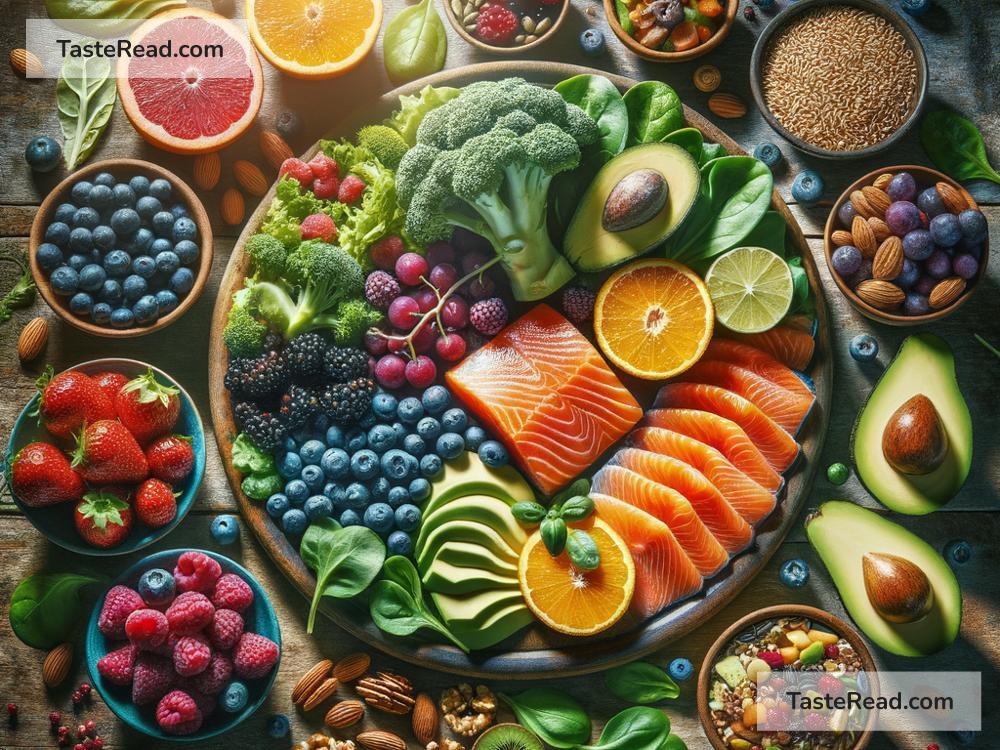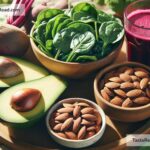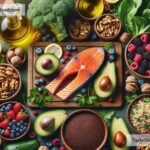Boost Your Cardiovascular Endurance with the Right Foods
Cardiovascular endurance is the ability of your heart and lungs to work together efficiently during exercise or physical activities. Whether you’re a runner, cyclist, swimmer, or just someone who wants to stay healthy, improving your cardiovascular endurance is key to feeling stronger and more energetic. While regular exercise is essential, your diet also plays a big role in supporting heart health and endurance. In this blog, we’ll discuss foods that can help you build better cardiovascular endurance—in simple terms!
Why Does Diet Matter for Cardiovascular Endurance?
Your heart is a muscle, and like any muscle, it needs the right nutrients to perform well. A healthy diet not only strengthens the heart but also helps improve blood flow, reduce inflammation, and provide your muscles with the energy they need during workouts. Eating the right foods can give your body the fuel it needs to power through long periods of activity.
Here are some of the best foods that support heart health and can improve your cardiovascular endurance.
1. Oats for Sustained Energy
Oats are loaded with complex carbohydrates, which are great for providing steady energy. They also contain fiber, specifically beta-glucan, which is good for keeping your cholesterol levels in check. Lower cholesterol means better circulation, and better circulation means improved endurance during physical activity.
Start your day with a bowl of oatmeal topped with fruits and nuts to fuel your workout and keep your energy levels stable throughout the day.
2. Bananas for Quick Energy
Bananas are nature’s quick energy snack. They are rich in potassium, an important mineral that helps your muscles function properly and prevents cramping during exercise. Bananas also provide natural sugars and carbohydrates, which your body can easily turn into energy.
Eat a banana before or after your workout to keep your energy levels up and your muscles happy.
3. Beets for Improved Blood Flow
Beets are well-known among athletes for boosting endurance. They contain nitrates, which your body converts into nitric oxide. Nitric oxide helps relax and widen blood vessels, improving blood flow and oxygen delivery to your muscles during exercise. Better blood flow means you can work out longer without feeling tired.
You can add raw or cooked beets to salads, blend them into smoothies, or drink beet juice as a pre-workout boost.
4. Salmon for Heart Health
Salmon is a great source of omega-3 fatty acids, which are excellent for your heart. Omega-3s help lower inflammation, improve circulation, and keep your heart pumping efficiently. A strong heart will keep you going during those longer workouts or high-intensity activities.
Try to include salmon in your dinner once or twice a week. If salmon isn’t your thing, you can try other fatty fish like mackerel, sardines, or trout.
5. Spinach for Iron and Energy
Spinach is packed with iron, an important mineral that helps your blood carry oxygen to your muscles. If your body doesn’t have enough iron, you may feel tired or weak, making it harder to improve your endurance. Spinach also contains magnesium, which supports muscle function and helps you avoid cramps.
Blend spinach into a smoothie, toss it into a salad, or enjoy it cooked as a side dish to improve your cardiovascular performance.
6. Nuts for Long-Lasting Energy
Almonds, walnuts, and other nuts are great sources of healthy fats, protein, and fiber, all of which help your body maintain energy during prolonged physical activities. The healthy fats in nuts support heart health, making them a perfect snack for endurance athletes.
Carry a small handful of nuts with you to keep your energy steady during long runs or workouts. Just be careful not to overeat them, as they are high in calories.
7. Sweet Potatoes for Carbs and Potassium
Sweet potatoes are another excellent source of energy for endurance training. They contain complex carbohydrates that provide a steady source of fuel for your muscles. Sweet potatoes also have potassium, which helps regulate muscle function and prevents cramping.
Bake a sweet potato as a pre-workout meal or enjoy it as a side dish during dinner.
8. Chia Seeds for Stamina
Chia seeds may be tiny, but they pack a big punch when it comes to endurance. These seeds are rich in omega-3 fatty acids, fiber, and protein, which help keep you energized during long exercise sessions. They also absorb water and help keep you hydrated, which is essential for cardiovascular endurance.
Mix chia seeds into smoothies, yogurt, or oatmeal to reap their benefits.
9. Dark Chocolate for Heart Health
Yes, chocolate can be good for you—if you choose the right kind! Dark chocolate (with at least 70% cocoa) contains flavonoids, which improve circulation and reduce inflammation. These benefits support a healthy heart and better performance during physical activity.
Enjoy a small piece of dark chocolate as an occasional treat to keep your heart happy.
10. Water for Hydration
While not technically a food, water is crucial for cardiovascular endurance. When you’re dehydrated, your heart has to work harder to pump blood, which can make exercise feel more tiring. Staying hydrated ensures that your body is able to transport nutrients and oxygen efficiently.
Drink water throughout the day, especially before, during, and after exercise.
Final Thoughts
Improving your cardiovascular endurance isn’t just about working out—it’s about eating the right foods to support your heart and muscles. Incorporating these heart-healthy, energy-boosting foods into your diet can help you perform better and feel stronger during physical activities. Combine good nutrition with regular exercise, and you’ll be on your way to building a healthier, more resilient body. Happy eating and training!


